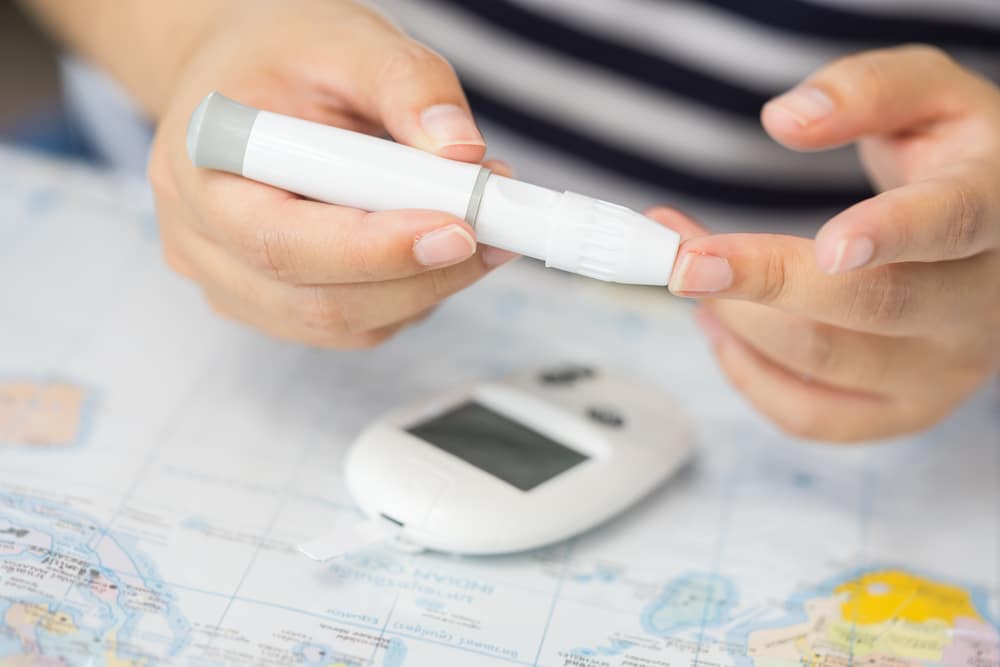Contents:
- Medical Video: Your Diabetes Symptoms Will Disappear In Just 5 Days! You Need Two Ingredients to Make This Recipe
- What is the relationship between chemicals and risk factors for diabetes?
- What chemicals are suspected to be risk factors for diabetes?
- Phthalate and bisphenol A (BPA)
- Arsenic
- Polychlorinated biphenyls (PCB) and dioxin
- Can you prevent exposure to the chemicals above?
Medical Video: Your Diabetes Symptoms Will Disappear In Just 5 Days! You Need Two Ingredients to Make This Recipe
Age factors, unhealthy eating patterns, heredity, and ethnicity are common risk factors for diabetes. But according to research, there are other factors that contribute to increasing the risk of diabetes. One of them is chemicals. Chemicals are very closely involved in your daily life, found in the environment and the products you use every day. That's why you might not realize it as a factor that increases your chances of developing diabetes. How come?
What is the relationship between chemicals and risk factors for diabetes?
Certain chemicals can directly increase the risk of disease including obesity which is a serious risk factor in the development of type 2 diabetes.
According to Kristina Thayer, the head of the Integrated Risk Information System (IRIS) division of the Environmental Protection Agency (EPA) which conducted research in Triangle Park, North Carolina, revealed that there was a connection between several chemicals found in the environment and frequently used products with increased risk. diabetes.
What chemicals are suspected to be risk factors for diabetes?
Phthalate and bisphenol A (BPA)
The chemicals phthalate and bisphenol A (BPA) are found in soaps, nail polish, hair sprays, perfumes, and moisturizers.
In a study published in July 2012 in the Journal of Environmental Health Perspectives found that women who had the highest levels of pthalate in their urine had an increased risk of up to 70 percent for diabetes compared to women who had lower phthalate levels.
Another finding by a study published in the 2014 Journal of Environmental Health Perspectives. Researchers found that phthalate exposure could be associated with a risk of type 2 diabetes among middle-aged (but not older) women, this is presumed because premenopausal women are more susceptible to endocrine disorders due to higher estrogen levels.
Arsenic
Another chemical suspected of increasing diabetes risk factors is arsenic.
One study found that Bangladesh and Taiwan contained high levels of arsenic in their drinking water. Someone who drinks water with high arsenic levels is more at risk for developing diabetes. Unlike in the United States, the EPA regulates arsenic chemicals closely, so the level of arsenic exposure in Americans is lower compared to Bangladesh and Taiwan.
The study also found that with decreasing levels of arsenic exposure in the body, a person's risk of diabetes also decreased.
Polychlorinated biphenyls (PCB) and dioxin
EPA, the United States government organization that deals with environmental protection has banned PCB production and circulation since 1979, but in fact these chemical compounds still exist in the environment and have been linked to obesity in adults.
Polychlorinated biphenyls (PCB) and dioxin chemicals are found in food fats and will be stored in the body. If you or your closest person is overweight or obese, you may have high levels of polychlorinated biphenyls (PCB) and dioxin in fat. But according to research it is very difficult to describe the chemical effects of the health conditions of someone who is overweight or obese.
Can you prevent exposure to the chemicals above?
Much research needs to be done to determine exactly how chemicals such as phthalate, bisphenol A (BPA), arsenic, polychlorinated biphenyls (PCB), and dioxins or other chemicals affect your body and increase risk factors for diabetes.
You must remember that diabetes itself can be caused by a number of factors, it is possible that the chemicals from the environment and the products you use are additional risk factors for diabetes.
Compared to you just feeling scared, it's good to start now that you have to apply healthy lifestyle that is actually under your control. Pay attention to what you eat, how much you eat, and make sure you are actively moving and exercising.












